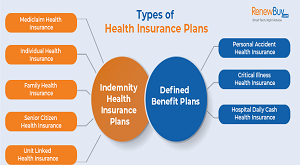Access to quality care is a fundamental benefit of having health insurance.
Health insurance coverage ensures that individuals and families have access to a wide network of healthcare providers, including primary care physicians, specialists, hospitals, and clinics. This access to quality care is essential for receiving timely and necessary medical services, promoting preventive care, managing chronic conditions, and addressing health concerns effectively.
With health insurance, individuals can seek medical care from a diverse range of healthcare professionals, enabling them to receive the specialized treatment and expertise required for their specific health needs. This access to a broad network of providers ensures that individuals can receive comprehensive and coordinated care, leading to improved health outcomes and better overall well-being.
For example, if an individual has a health concern that requires specialized care, such as a heart condition or cancer, they can access a specialist who has the expertise and training required to treat their condition effectively. Without health insurance, individuals may not be able to afford the cost of specialized care or may not have access to the necessary healthcare providers.
Moreover, health insurance plans often cover preventive services such as vaccinations, screenings, and wellness exams. By providing coverage for preventive care, health insurance encourages individuals to proactively manage their health, detect potential health issues early, and take steps to prevent the onset of chronic conditions. Access to preventive care is crucial for maintaining good health, reducing the risk of developing serious health problems, and promoting long-term wellness.
For example,
if an individual has access to preventive care services, such as regular check-ups and health screenings, they can identify potential health issues early and take steps to prevent the onset of chronic conditions. This proactive approach to healthcare can help individuals avoid the need for more expensive and invasive treatments down the line, leading to better health outcomes and lower healthcare costs over time.
Furthermore,
health insurance facilitates access to essential healthcare services, including prescription drug coverage, mental health services, maternity and pediatric care, and treatments for chronic conditions. This comprehensive coverage ensures that individuals can address their diverse health needs, receive necessary medications, access mental health support, and receive specialized care for specific health concerns.
For example, if an individual has a chronic condition such as diabetes or asthma, they may require ongoing medication and treatment to manage their condition effectively. With health insurance, they can access the necessary medications and healthcare services without facing financial hardship, ensuring that they can effectively manage their health and maintain a good quality of life.
In addition to promoting access to quality care, health insurance also contributes to long-term health and financial security. By having access to quality care, individuals can effectively manage their health, address health issues promptly, and prevent health conditions from escalating into more serious problems. This proactive approach to healthcare not only leads to better health outcomes but also reduces the likelihood of incurring high healthcare costs associated with untreated or advanced health conditions.
Overall, access to quality care through health insurance is essential for individuals and families to receive the medical services they need, maintain good health, and address health concerns effectively. By providing access to a broad network of healthcare providers, coverage for preventive care, and comprehensive healthcare services, health insurance plays a critical role in promoting the well-being and long-term health of individuals, ultimately contributing to a healthier and more secure population.






